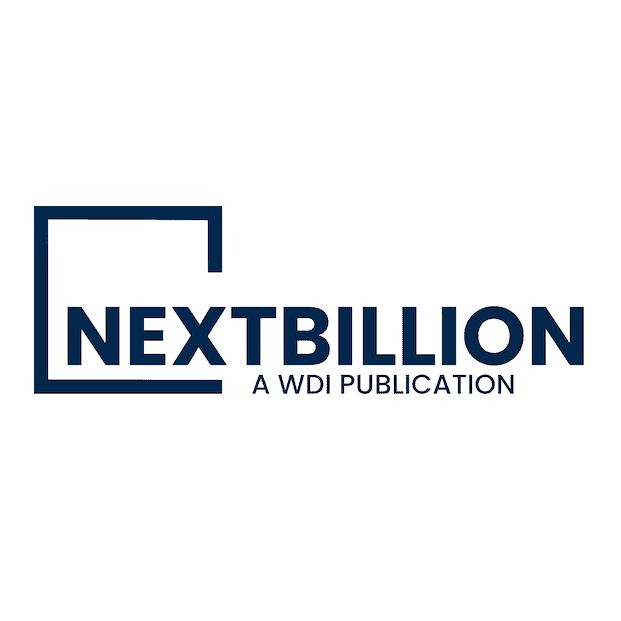-
A New Green Revolution in Indian Agriculture: How Satellite Remote Sensing is Quietly Transforming the Sector
Satellite remote sensing involves the use of satellite-based sensors to capture data about the earth’s surface. According to Sat Kumar Tomer at Satyukt Analytics, this technology is increasingly being used by Indian farmers and the businesses and organizations that serve them, generating data on vegetation health, soil moisture, irrigation patterns and other key drivers of agricultural productivity. He explores how satellite remote sensing is enabling a data-driven revolution in Indian agriculture, and how the sector can overcome barriers to wider adoption.
- Categories
- Agriculture, Environment, Finance, Technology
-
The ABCs of Catalytic Sunsetting: How Foundations and Other Philanthropic Funders Can Exit Boldly — And Leave a Bigger Legacy
What if the best way to ensure your philanthropic legacy … was to close your doors? As Nancy Swanson-Roberts at Linked Foundation and Kusi Hornberger at Dalberg Capital argue, the world’s most pressing problems demand urgent, bold action that incremental giving over generations often can't enable. They explain why philanthropic organizations like Linked Foundation are deliberately spending down their assets within a defined timeframe to catalyze systemic change — an approach they call “catalytic sunsetting" — and share three strategies that can help any funder exit with purpose and power.
- Categories
- Investing, Social Enterprise
-
Scaling Youth Entrepreneurship in Africa: A Multi-Stakeholder Approach for Developing Local Ecosystems
Across Africa, governments and development actors are investing in youth entrepreneurship, with funders and international NGOs increasingly partnering with local non-profits to develop better support ecosystems for young entrepreneurs. But as Grégory Valadié and Juan Carlos Thomas at TechnoServe explain, many of these local organizations face limitations in capacity, systems and tools. They explore four ways to maximize these partnerships’ impact by complementing their direct implementation work with systems-level solutions, and leveraging institutions that already reach young people at scale.
- Categories
- Education
-
Building Sustainable Sanitation Markets in Africa: Lessons from Uganda and Malawi
Much of Africa's urban population relies on pit latrines, due to the absence of sewer systems. As a result, creating viable markets for affordable and sustainable pit-emptying services is an essential part of ensuring access to safe sanitation across these communities. Cecilia Gamba at LeFil Consulting shares research from Uganda and Malawi, which sheds light on the challenges, opportunities and scalable business models that are emerging in this critical sector.
- Categories
- WASH
-
A Field-Based Perspective on Sub-Saharan Africa’s Agriculture Crisis: Exploring the Four Critical Dimensions that are Driving Food Insecurity
Food insecurity is no longer just a humanitarian concern in sub-Saharan Africa: It is a business issue. According to Asamoah Oppong Zadok, a researcher and entrepreneur specializing in sustainable agriculture, it constitutes a fundamental business risk with far-reaching implications for the region's economic growth, supply chain stability and geopolitical resilience. He explores the multifaceted structural factors that are driving Africa's agriculture and food security crisis, exploring how business innovators, funders and policymakers can respond.
- Categories
- Agriculture, Environment, Technology
-
The Circular Solar Opportunity in Africa: How Refurbishing Solar Systems Can Reduce E-Waste and Expand Energy Access
While working in the bustling solar energy scene in Ethiopia, Zelalem Nigatu at Inter Ethiopia Solutions noticed a disheartening trend: Mountains of solar home systems were being discarded due to minor issues that could have been fixed by trained technicians with access to spare parts and the proper tools. He explores how Inter Ethiopia Solutions is tackling this challenge through a systematic approach to refurbishing solar home systems and repurposing lithium-ion batteries, enabling it to offer affordable off-grid energy solutions while reducing e-waste.
- Categories
- Energy, Environment, Technology
-
Women, Wealth and Climate Resilience: The Transformative Power of Asset Creation in Africa
Climate vulnerability is a key factor behind the challenges facing women and girls in Africa. Yet as Jo Opot at Gather Ventures explains, the impact of investments aimed at building their climate resilience often fades too quickly, as poverty and tradition pull them back into household and caregiving duties. She argues that this problem represents a failure to address underlying power dynamics, and proposes a critical yet often overlooked solution — asset creation — exploring how it can advance both climate resilience and the quality of life for women and girls.
- Categories
- Environment, Investing
-
Building Smarter Data Practices in Entrepreneurship Support Ecosystems: How Entrepreneurs, Investors and Other Stakeholders Can Drive Systemic Change
Entrepreneurship support ecosystems include a diverse range of actors, from incubators and accelerators to policymakers, impact investors and other funders. But though strengthening these ecosystems is a growing priority in emerging markets, monitoring, evaluation and learning remains a persistent challenge, due in part to a lack of data sharing. Heather Esper at the William Davidson Institute and Keith Obade and Moses Waweru at Villgro Africa explore the reasons various stakeholders collect data, the obstacles that keep this data fragmented and underutilized, and the ways these ecosystems can improve their data practices.
- Categories
- Investing, Social Enterprise










